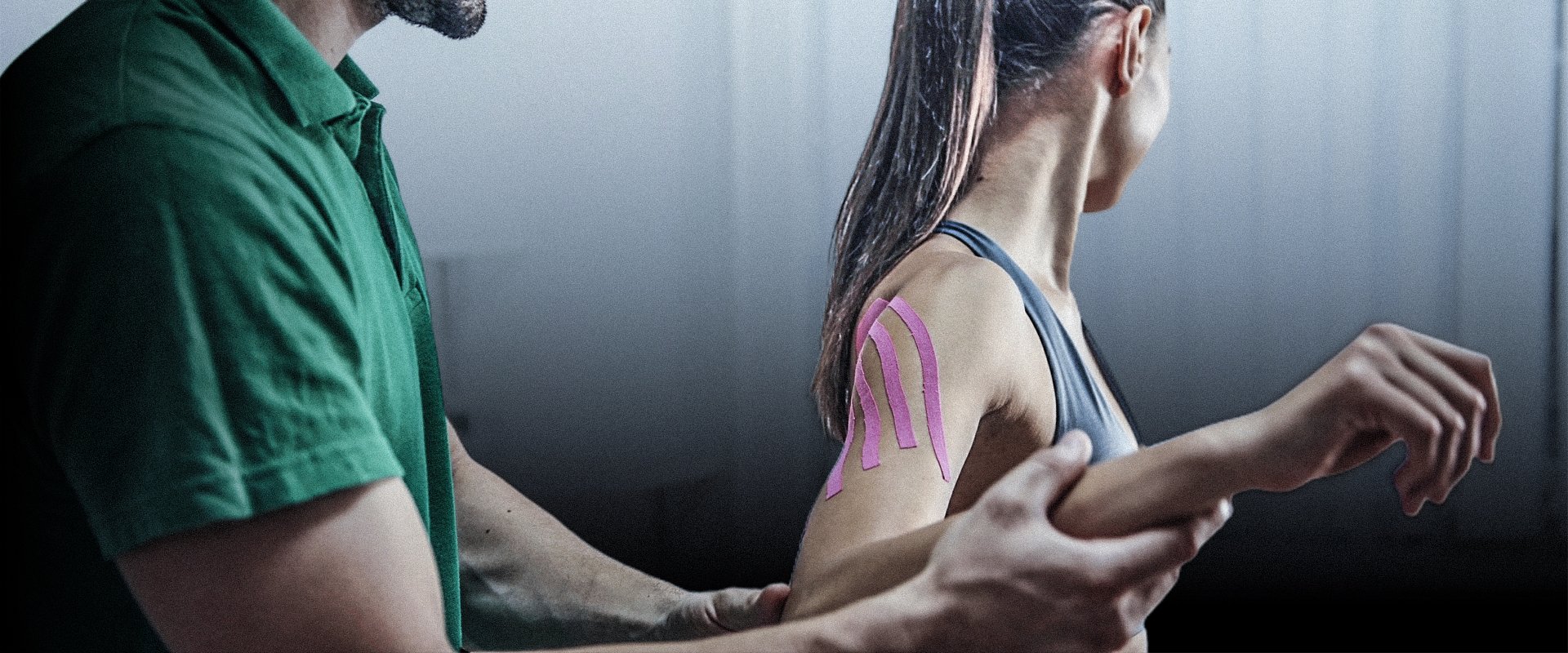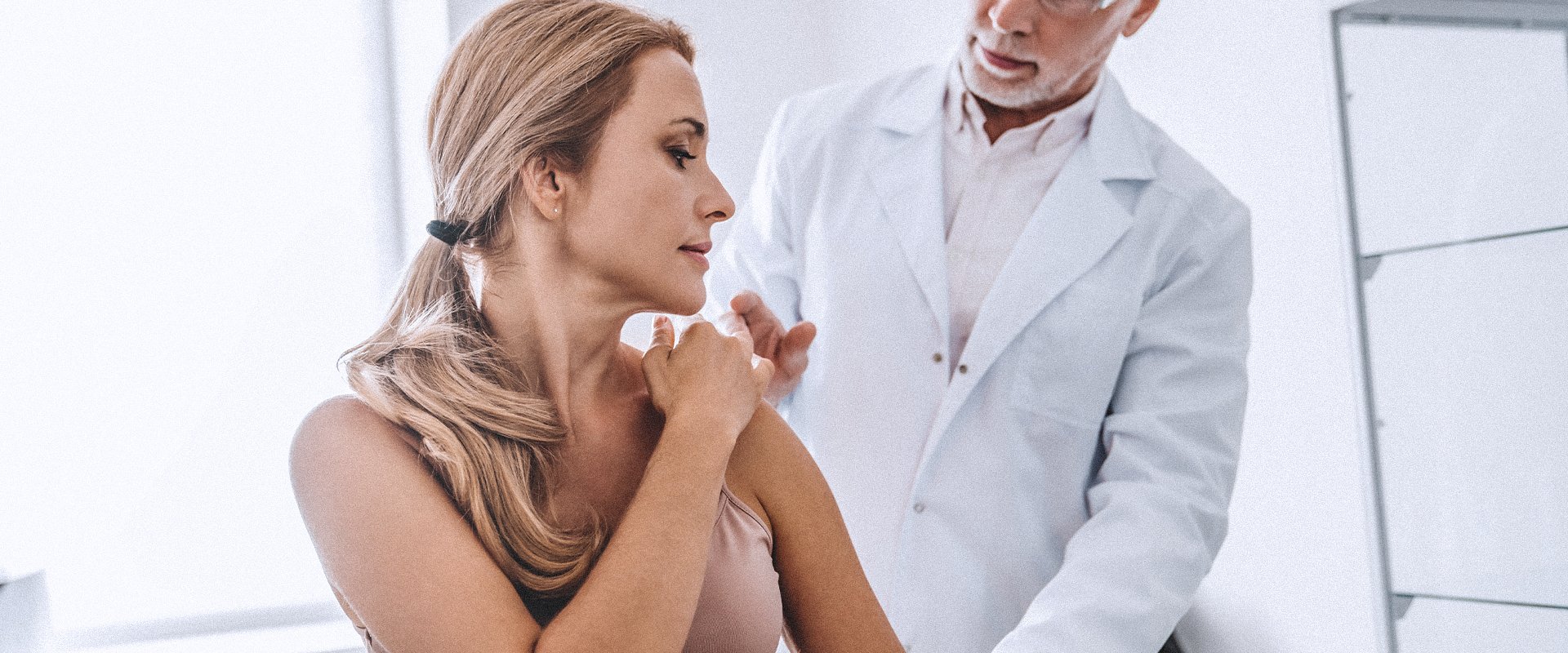
Prehab for Rotator Cuff Surgery
AT EVOLVE
Prehab for Rotator Cuff Surgery
HOW CAN PHYSICAL THERAPY PREPARE ME FOR ROTATOR CUFF SURGERY?
The muscles of the rotator cuff are responsible for many of the movements we can perform with our shoulder. When torn, pain, stiffness, weakness and loss of mobility can occur in the shoulder joint. When indicated, surgery to repair the rotator cuff can help restore function to the arm. Working with a physical therapist is often expected following rotator cuff surgery, but did you know that working with one of our skilled physical therapists prior to your surgery, a concept called “prehabilitation,” can help prepare the arm and shoulder for the surgery, educate you on what to expect during your recovery and hopefully, shorten overall recovery time?
WHAT DOES PREHABILITATION FOR ROTATOR CUFF SURGERY LOOK LIKE?
My team of therapists and I will examine your shoulder and arm and get to know the goals you have for recovery post-surgery. We will also ask you about your current activity level and any symptoms that you are having related to your shoulder, other injuries or medical issues. Prior to surgery, we will create a treatment program to help reduce joint stiffness, improve muscle strength and neuromuscular control and restore range of motion. We will also help you prepare for the surgery itself and the subsequent recovery. Each of these things may help you to recover faster and more completely from rotator cuff surgery.
WHAT ARE THE GOALS AND WHO IS A CANDIDATE FOR ROTATOR CUFF SURGERY?
Rotator cuff surgery is intended to reattach or repair a torn rotator cuff tendon in order to address symptoms of pain and weakness. The muscles of the rotator cuff originate either on top of the shoulder or at the shoulder blade and attach to the humerus (upper arm bone). The rotator cuff helps keep the head of the humerus centered in the glenoid cavity throughout movement. This is necessary to generate the range of motion and force normally available at the shoulder. The muscles of the rotator cuff and their function are as follows:
Supraspinatus: Located over the top of the shoulder, this muscle aids in lifting the arm up at the side, a movement called “abduction”
Infraspinatus: Located posteriorly along the outside of the shoulder blade, this muscle aids in rotating the arm outward, a movement called “external rotation”
Teres Minor: Located posteriorly along the outside of the shoulder blade, this muscle aids in rotating the arm outward, a movement called “external rotation”
Subscapularis: Located posteriorly along the underside of the shoulder blade, this muscle aids in rotating the arm inward, a movement called “internal rotation”
The muscles or tendons of the rotator cuff can tear due to an injury or in response to chronic wear-and-tear from repetitive movements such as reaching up to place boxes on high shelves at work. Nonsurgical management such as physical therapy is usually the first line of treatment for a torn rotator cuff. In cases where significant pain persists or loss of shoulder function prevents a person from being able to participate in athletics or work duties, surgery may be recommended.
WHY CHOOSE PREHABILITATION BEFORE ROTATOR CUFF SURGERY?
While most patients expect to undergo physical therapy following shoulder surgery, fewer patients are familiar with how they can benefit from working with a physical therapist in anticipation of undergoing rotator cuff repair surgery. Due to the symptoms commonly associated with a rotator cuff tear, most patients will naturally decrease their activity levels with the affected arm either to control pain or due to weakness or loss of range of motion. Muscle atrophy, joint stiffness, pain and loss of neuromuscular control begin to develop. All of these symptoms will be compounded by the surgery and period of immobilization of the arm. While you can wait to address these symptoms after surgery, why not get a head start on improving them as much as possible ahead of time so that you are not so far behind when it comes time for active rehabilitation?
Call to Schedule a Consultation! 1-718-258-3300End Injury Progression
Prehab physical therapy for rotator cuff surgery has proven to prevent injury, slow and even stop pain issues, improve performance, and reverse injury progression in many cases.
Relieve Pain
The movements used in this technique can target your entire body helping you to manage discomfort and pain during the course of your physical therapy treatments.
Improve Range of Motion
Posture awareness is an important area to focus on due to the fact that certain positions may cause you further discomfort and pain.
Restore Mobility
You can regain mobility and flexibility by taking part in the stretches and exercises as prescribed by your physical therapist.
How Long Will Prehab Physical Therapy for Rotator Cuff Treatments Last?
If you decide to work with a physical therapist to help with rotator cuff issues, your entire treatment plan could consist of around 8-20+ different physical therapy sessions that will each last 60-90 minutes. Once you complete your customized physical therapy treatment plan, you will be able to continue to do the prescribed stretches and exercises utilized during your PT sessions yet in the comfort of your own home.
WHAT CAN YOU EXPECT FROM ROTATOR CUFF SURGERY PREHABILITATION?
My team of therapists will individualize a prehabilitation program just for you, however, there are many elements that are common across different prehabilitation programs. To help you gain a better understanding of what to expect, here is a list of some common goals of prehabilitation for rotator cuff surgery:
Set expectations: The idea of surgery can be intimidating. Having an idea of what to expect after the procedure can ease some of your anxiety and help ensure you have what you need to support your recovery. Getting to know your physical therapist before surgery will help build trust with them when it comes time for post-operative care. They can advise you on any movement precautions you may have after surgery and any equipment or modifications to your home that might be necessary. They can also help you understand what kind of help or support you will need from others and prepare you for how your body may feel after surgery.
Manage pain and inflammation: Pain and inflammation are common in an acute rotator cuff injury and pain can persist even with a chronic tear. In the beginning these symptoms alert us that we need to protect the injured area and that the body is trying to heal itself. Pain and inflammation can benefit from physical therapy to help reduce the pain response prior to surgery, especially if surgery is delayed for any reason. Learning strategies to manage pain and inflammation will help you stay comfortable and as active as possible in preparation for surgery.
Build or maintain strength and flexibility: While the brain knows that surgery is intended to heal the injury, the body views the surgical procedure as another injury to the tissues. The body will need to heal from the effects of the surgery in addition to any impairments that may have been present prior to the surgery. Maximizing strength, soft tissue mobility and flexibility prior to the surgery can help decrease muscle atrophy and stiffness following the procedure which can ultimately quicken your recovery.
Prehabilitation for rotator cuff surgery is an excellent choice for those wanting to get a head start on their recovery and to help improve their chances of a good surgical outcome. My team of therapists and I would love to help you prepare for your upcoming rotator cuff surgery. Call the office at Evolve today to get started.
Mill Basin (located in Harbor Fitness)
6161 Strickland Ave
Brooklyn, NY 11234
Monday: 7am-8pm
Tuesday: 7am-8pm
Wednesday: 8am-5pm
Thursday: 7am-8pm
Friday: 8am-1pm
Park Slope (located in Harbor Fitness)
550 5th Ave.
Brooklyn, NY 11215
Monday: 9am-8pm
Tuesday: 8am-6pm
Wednesday: 9am-8pm
Thursday: 8am-6pm
Friday: 8am-3pm
Gravesend
372 Avenue U
Brooklyn, NY 11223
Monday-Thursday: 8am-8pm
Friday: 8am-3pm
Ready to take the next step to a healthier you?
Contact Us Today!
PREHAB PHYSICAL THERAPY FOR ROTATOR CUFF SURGERY!
Need Prehab for Rotator Cuff Surgery?
Let our caring and compassionate physical therapists help you with relieving pain while getting you back on your feet comfortably.
Call now to schedule your first PT consultation free of charge.
Call: 1-718-957-2422







